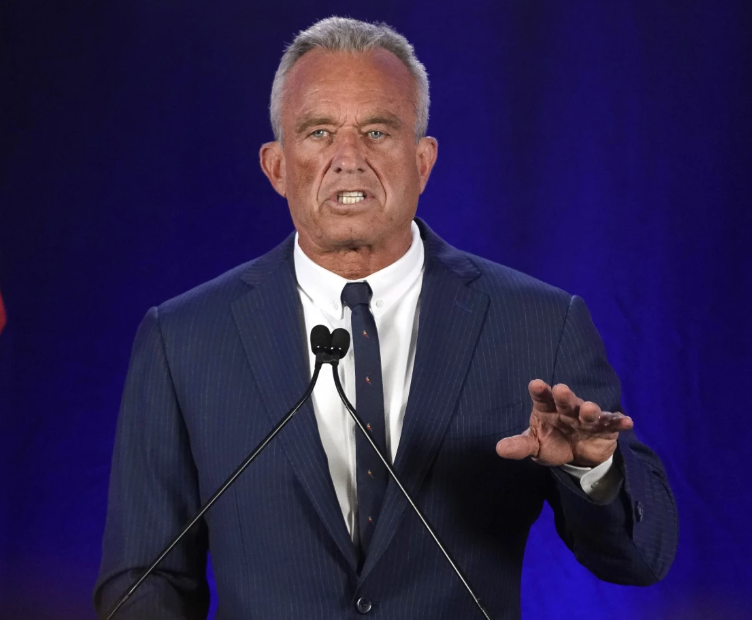Now that Robert F. Kennedy Jr. has been confirmed as the Secretary of Health and Human Services, he is attempting to make good on his preelection promise to end advertisements by “Big Pharma.”
Kennedy has some pretty high-profile allies in his quest. Both the American Medical Association and the American Society of Health-System Pharmacists advocate doing away with advertising drugs in much the same way as the FCC banned liquor and cigarette ads decades ago.
However, First Amendment watch dogs are saying “not so fast,” arguing that such a ban would violate the Constitution.
The landmark 1976 Supreme Court case, Virginia State Board of Pharmacy v. Virginia Citizens Consumer Council, Inc. opened the door for the flood of drug advertisements now seen on television and computer screens. At that point, consumer demand for prescription drugs was high.
Currently, the United States and New Zealand are the only countries that allow direct-to-consumer advertising on radio and television, according to the Journal of Health Economics and Outcomes Research.
Years ago, I recall seeing an ad with a script that went something like this: “Do you suffer from diarrhea, constipation, headache, pain in the knees, scalp or fingertips, muscle cramps or crossed-eyes that are side effects of your current medication? Ask your doctor if “Afixxforall” is right for you.”
The commercial then continued to list the side effects that the advertised medicine caused.
RFK Jr. and his allies state that by showing pastoral scenes of happy people flying kites, picking flowers and smiling, while mice-type at the bottom of the screen showing barely legible disclaimers, such as the lists of side effects, amount to false advertising or misinformation.

However, the First Amendment stalwarts contend that because the FDA approved the drug, then they endorse its use, even if it doesn’t make a patient want to go to the park and fly a kite as if they have no cares in the world.
Another major consideration, apart from the First Amendment issue, is the sheer amount of money pharmaceutical companies spend to advertise their products. According to Forbes magazine, those companies spend, on average, $20.9 million per drug on advertising.
National Nurses United released a study showing that pharmaceutical companies sometimes spend twice, if not three times more money on advertising than on research and development. For example, in 2015, Johnson & Johnson alone spent $17.5 billion on marketing and only $8.2 billion on research and development.
Those who are against big pharma ads state that the cost of the advertising is passed on to consumers, and this puts the elderly as well as sufferers of chronic diseases such as diabetes, HIV and cancer at risk of not being able to afford their medications.
I believe that there can be a compromise, much like there was over the advertising of liquor.
In some studies, wine can have a beneficial effect if used sparingly, but pure-grain alcohol has no recorded health benefits at all, unless you are clinging to the fantail of the Titanic as it makes it’s final plunge. The studies also seem to change as to how much consumption of a specific spirit is beneficial.
So, the government made a compromise. Liquor on its own could not be advertised, but stores that sold wine and liquor could buy ads, so long as they didn’t mention a specific brand or make claims about health effects.
With the whole pharmaceutical ads problem, I believe that I have come up with a compromise that will make everyone except “Big Media” happy.
According to the Congressional Budget Office, the FDA spends roughly $19 billion in subsidies for the top seven drug manufacturers. This makes the American taxpayer a major investor in so-called “Big Pharma.”
Since the creation of the drugs is largely taxpayer funded, advertisements for the drugs should be considered a public service announcement and, therefore, free to air.
I promise that those ads will dry up faster than Clarks Hill after a summer of heavy drought conditions.
Or perhaps, people can use the medication I am currently researching and developing. It’s called “turnofftelegooutsideapan.”
My studies show that going outside and breathing in nature’s air has far more beneficial effects than sitting in front of a screen and munching on Doritos, it’s free and it doesn’t violate the Constitution.
Scott Hudson is the Senior Investigative Reporter, Editorial Page Editor and weekly columnist for The Augusta Press. Reach him at scott@theaugustapress.com











